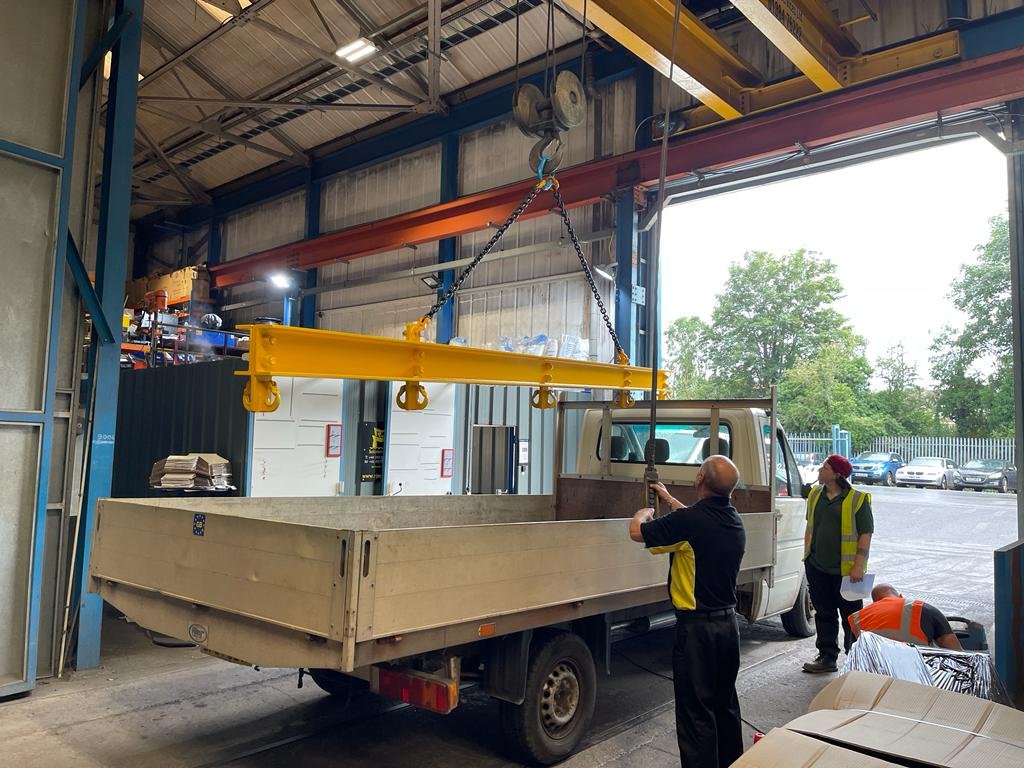Lifting Gear & Loose Tackle
Eurocrane can supply all types of lifting accessories to suit any lifting or handling requirement
Lifting gear and loose tackle are two essential components for safe and effective material handling. These pieces of equipment are used in a variety of industries, including construction, manufacturing, and logistics, to move heavy loads with precision and control.
Lifting gear and loose tackle refers to a wide range of equipment used to lift and move heavy loads. They can include cranes, hoists, slings, shackles, wire ropes, chains, webbing slings and hooks.
These pieces of equipment are designed to handle different types of loads and are rated for specific weight limits. Both, lifting gear and loose tackle is subject to strict safety regulations, and it must be inspected and tested regularly to ensure it is in good working condition.
As a specialised designer and manufacturer of lifting equipment, Eurocrane has a wealth of experience and expertise in all aspects of below-the-hook lifting equipment, including fall arrest equipment.
This makes Eurocrane the ideal choice for the inspection and testing of your equipment, specifically complying with LOLER (Lifting Operations and Lifting Equipment Regulations) inspection requirements.
6/12 Monthly LOLER Inspections
In accordance with the LOLER (Lifting Operations and Lifting Equipment Regulations) legislation, all loose lifting items, which encompass a wide range of equipment such as lifting beams, lifting frames, slings, shackles, blocks, hoists, harnesses, and more, are subject to visual inspections every 6 months. Items like gantries, jibs, and davits require inspections on a 12-month basis.
Professionals in LOLER Testing and Lifting Inspections
Eurocrane excels in LOLER testing and lifting inspections. We go beyond mere inspection and testing by offering expert guidance and recommendations on efficient equipment management, helping you reduce inspection costs and unnecessary purchases. Our Report of Thorough Examination (ROTE) provides a comprehensive overview, including details of equipment that has passed, equipment that has failed (along with the reasons for failure), and the upcoming inspection date.
The term "LOLER" stands for the Lifting Operations and Lifting Equipment Regulations of 1998
LOLER is all about keeping lifting equipment safe. It's a set of rules aimed at making sure that any lifting activity is carried out in a safe manner. These regulations are not just guidelines; they are a legal responsibility for all companies.
If your business involves employees using lifting equipment as part of their work, these rules apply to you. It's important to designate a 'competent person,' someone qualified to oversee and manage all lifting operations safely.
Ensuring the safety of lifting equipment is vital. This involves regular assessments by trained technicians to confirm that the equipment is fit for its intended purpose. The responsibility for these inspections rests with the business owner, who must ensure they occur as scheduled.
Each piece of equipment must be properly labeled, tracked, and dated. Any problems or faults with the equipment must be recorded and reported to the relevant technician responsible for repairs or maintenance. It's important to note that a LOLER inspection serves a different purpose than routine maintenance tasks like regular checkups, part replacements, and minor adjustments.
Whether you are an owner or operator of lifting equipment, complying with these regulations is both a legal requirement and a fundamental commitment to safety.
Inspection
Repair
Supply





